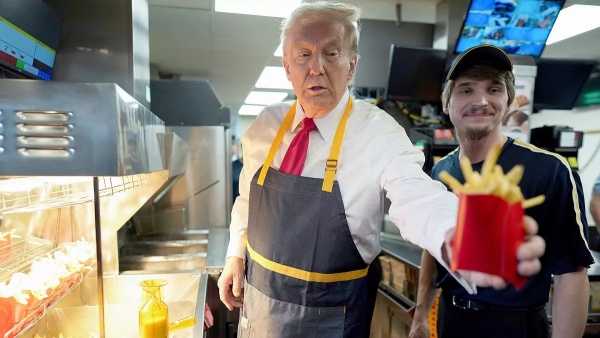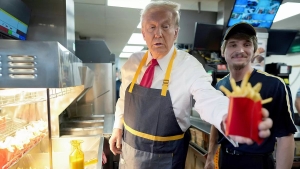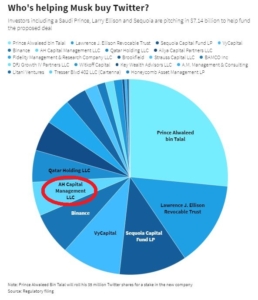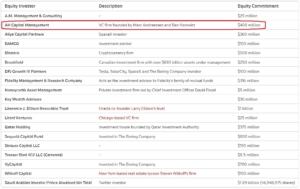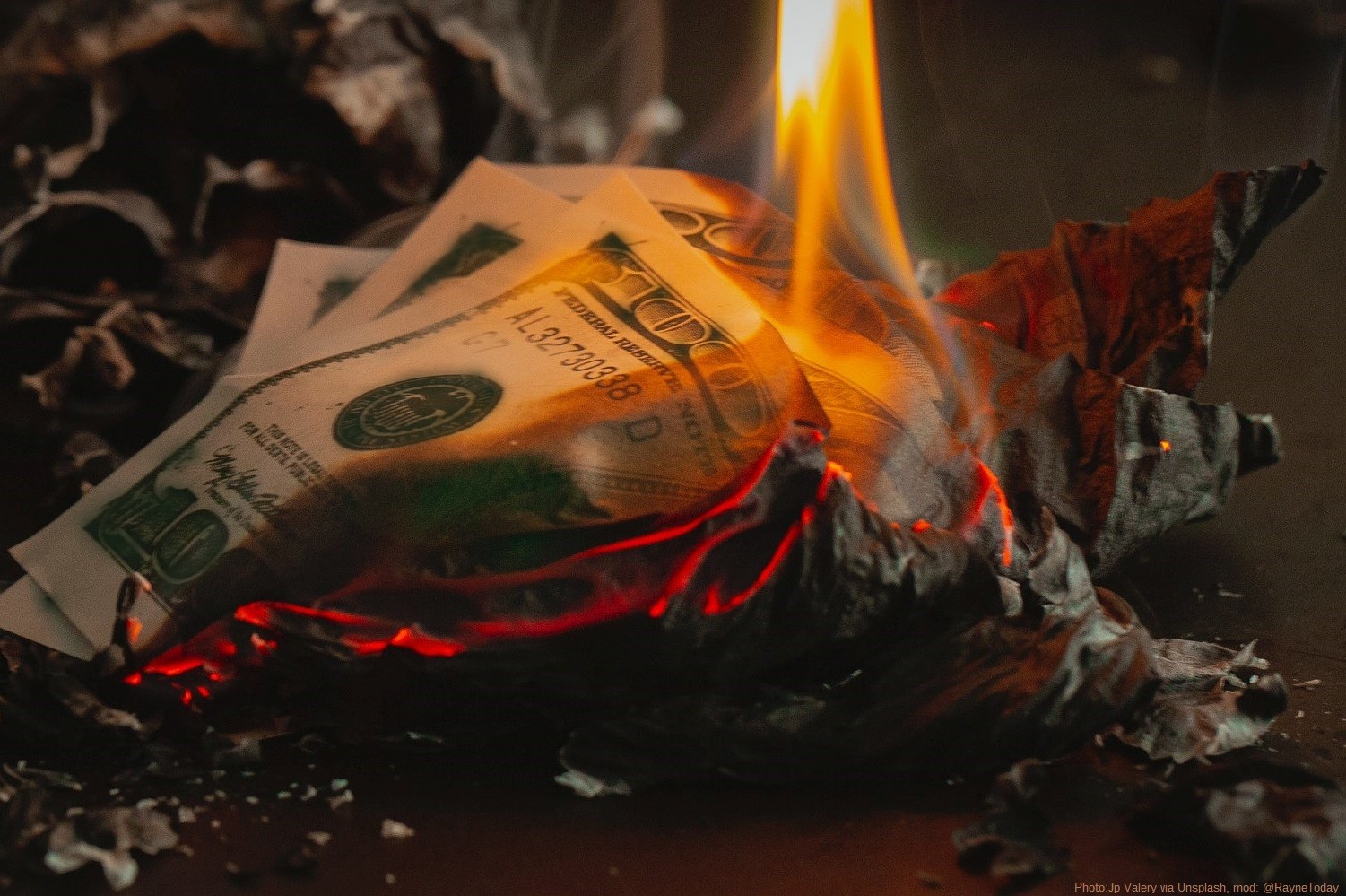[NB: check the byline, thanks. /~Rayne]
“I cried all the way to the bank.”
– attributed to performer Liberace
I’ve run the gamut from fuming to furious this past week. I didn’t have a dime in Silicon Valley Bank, but its failure royally pissed me off.
Did we not learn anything from the 2008 crash? Or the decade-long savings and loan crises?
For that matter, have we not learned to stop listening to millionaires and billionaires who will not go hungry when their investments fail though Mom and Pop and their tiny businesses will?
~ 3 ~
In March 2018, I wrote a letter to both of my senators asking them to vote No on S.2155 Economic Growth, Regulatory Relief, and Consumer Protection Act, explaining,
— While smaller community banks may complain about the cost of compliance with Dodd-Frank regulations, the costs may be entirely appropriate to a safe, secure banking system. We cannot expect safety and security at no cost;
— Too Big To Fail (TBTF) banks have been allowed to accrue economies of scale placing them at an advantage over smaller competitors. The balance should be in the amount of collateral TBTF banks are required to maintain to offset their much larger risk. It is not irrational to expect a trade off of cost savings in exchange for increased security;
— The bill backpedals on protections against racism in lending by preventing the Consumer Financial Protection Bureau from collecting data about lending demographics;
— And the Congressional Budget Office’s score is dismal:
• The bill would increase federal deficits by $671 million over the 2018-2027 period
• And “would increase the likelihood that a large financial firm with assets of between $100 billion and $250 billion would fail.”
And yet both of my senators voted for the bill. Sen. Gary Peters replied with a pathetic explanation that he was trying to help community banks.
Community. Banks.
Like Silicon fucking Valley’s bank, which grew to be Too Big To Fail.
Specifically, this is what he wrote:
Community banks and credit unions have made great contributions to our economic growth, and in turn, we must make sure they can continue reinvesting in our economy. Our financial regulations must protect consumers and ensure that community banks, credit unions, and other financial institutions can continue to safely provide the mortgages, small business loans, and auto financing that make our economy work for Michigan families. Big banks and Wall Street caused the financial crisis – not Michigan’s credit unions and community banks. Our state’s credit unions and community banks kept Michigan families afloat during the financial crisis by providing loans when big banks would not. We should not have a “one size fits all” approach to financial regulation.
Our economy is healthier and more stable when our financial system is diversified and not concentrated in a handful of the biggest multinational banks. Local community banks and credit unions are having difficulty competing with large, multinational banks headquartered out of state and overseas. This has resulted in increased consolidation and growth of the largest financial institutions while too many community banks and credit unions are being forced to close their doors. I am committed to ensuring that these local institutions can continue to provide affordable, competitive, high-quality financial services to Michigan’s hardworking families and businesses.
Yeah? Well the lack of diversity still happened and now the small banks and credit unions which were supposed to be protected are going to feel the pressure from yet another TBTF bank failure which slipped through the crack created by rolling back regulations.
I hate feeling like Cassandra. The only comfort I have is that I’m not alone.
Max Kennerly shared what Sen. Elizabeth Warren was surely thinking when she wrote about SVB this past week:
That. We fucking told you so. When are legislators going to listen?
And by legislators, I mean any of these Democrats who are still in office who voted for S.2155:
Democratic Senators (13 of these 18 are still in office):
|
Last Name
|
State
|
Comments |
|
Jones
|
Alabama
|
|
|
Bennet
|
Colorado
|
|
|
Carper
|
Delaware
|
|
|
Coons
|
Delaware
|
|
|
Nelson
|
Florida
|
|
|
Donnelly
|
Indiana
|
|
|
Peters
|
Michigan
|
|
|
Stabenow
|
Michigan
|
|
|
McCaskill
|
Missouri
|
|
|
Tester
|
Montana
|
|
|
Heitkamp
|
North Dakota
|
|
|
Hassan
|
New Hampshire
|
|
|
Shaheen
|
New Hampshire
|
|
|
Kaine
|
Virginia
|
|
|
Warner
|
Virginia
|
|
|
Manchin
|
West Virginia
|
|
|
King
|
Maine
|
(Independent, caucuses with Dems)
|
|
Heinrich
|
New Mexico
|
(Not Voting)
|
Democratic House Reps:
|
Bera
|
California
|
|
|
Bishop (GA)
|
Georgia
|
|
|
Blunt Rochester
|
Delaware
|
|
|
Carson (IN)
|
Indiana
|
|
|
Correa
|
California
|
|
|
Costa
|
California
|
|
|
Cuellar
|
Texas
|
|
|
Davis, Danny
|
Illinois
|
|
|
Delaney
|
Maryland
|
|
|
Foster
|
Illinois
|
|
|
Gonzalez (TX)
|
Texas
|
|
|
Gottheimer
|
New Jersey
|
|
|
Hastings
|
Florida
|
|
|
Himes
|
Connecticut
|
|
|
Kind
|
Wisconsin
|
|
|
Kuster (NH)
|
New Hampshire
|
|
|
Larsen (WA)
|
Washington
|
|
|
Lawson (FL)
|
Florida
|
|
|
Maloney, Sean
|
New York
|
|
|
Murphy (FL)
|
Florida
|
|
|
Nolan
|
Minnesota
|
|
|
O’Halleran
|
Arizona
|
|
|
Peters
|
California
|
|
|
Peterson
|
Minnesota
|
|
|
Rice (NY)
|
New York
|
|
|
Schneider
|
Illinois
|
|
|
Schrader
|
Oregon
|
|
|
Scott, David
|
Georgia
|
|
|
Sewell (AL)
|
Alabama
|
|
|
Sinema
|
Arizona
|
|
|
Suozzi
|
New York
|
|
|
Veasey
|
Texas
|
|
|
Vela
|
Texas
|
|
|
Speier
|
California
|
(Not Voting)
|
|
Walz
|
Minnesota
|
(Not Voting)
|
If any of these are your senators or representatives, feel free to call them at (202) 224-3121 and tell them they need to undo the damage S.2155 did in 2018, and re-assess Federal Deposit Insurance Corporation (FDIC) and National Credit Union Administration (NCUA) insurance and funding.
~ 2 ~
In a nutshell, this is what was wrong at Silicon Valley Bank:
• SVB had many high-value depositors whose accounts exceeded FDIC’s $250,000 threshold; 97% of funds deposited were uninsured;
• The bank leaned on borrowers to deposit all their cash with SVB if they were to be approved for a loan, leaving depositors greatly exposed to SVB’s failure;
• Using depositors’ cash, SVB bought excessively into long-term bonds while interest rates were low; when rates increased and more rapidly than anticipated, SVB tried to shift its distribution, but without adequately ensuring enough cash to cover withdrawals;
• SVB’s Chief Risk Officer left and no replacement was named between April 2022-January 2023; the absence of a CRO had not been widely known. A new CRO was named in January 2023, but long after volatility in the tech sector had increased and thousands of tech employees had been laid off.
Ultimately, the bank was extremely vulnerable to the trash talk among techbros who hung with Peter Thiel who pulled his cash and advocated his peeps do the same. They read a newsletter which said SVB was technically insolvent, got their panties in a twist and set off a bank run rather than carefully doing more research as to where SVB had distributed its portfolio and working with the bank to manage rejiggering SVB’s portfolio distribution.
These same depositors could have been asking questions about the CRO’s replacement last summer without raising a ruckus and starting a run, but no. They could have been asking about adequate stress testing last year, in tandem with the Federal Reserve’s moves to increase interest rates between July and December 2022, but no. Apparently they only talked to SVB management when they needed loans.
The capper was that SVB lobbied for weakening of Dodd-Frank Act regulations with passage of S.2155. None of these big bucks depositors batted an eye at that; some were surely donating cash to right-wing politicians who were bashing the Biden administration about interest rates.
One thing legislators could address is the nature of some of the deposits and the limits of FDIC insurance. If some of the depositors are businesses with sizable cash deposits needed for operating funds like payroll, it may be worth considering establishment of a particular kind of FDIC insurance on these accounts above and beyond $250,000.
Imagine you’re a general manager and owner of a technology business. Average pay of technology workers in Silicon Valley is $134,000/year, or $11,166/month. If you have 100 employees, your need for cash to cover payroll will exceed $1 million.
Silicon Valley’s technology businesses can be small shops of one or two people to several thousand – they all still need to cover payroll each month.
Are we really going to worry about making whole people who should be smart enough to know they’ve exceeded FDIC insurance limit with their deposits, people who are rather well off by comparison with the rest of the U.S.? Nope, especially not entrepreneurs’ personal deposits since taking risk is what entrepreneurs do, it’s on them.
But protecting the lower wage workers and the economy at large? Yes, we should consider this. In the past week I’ve seen small businesses scrambling with fire sales of product to raise cash for operations after losing money at SVB. There’s at least one Broadway production which may have been canceled altogether because its producer was a depositor at SVB. In both of these cases it’s workers whose salaries are much less than $100,000/year who are going to bear the brunt of this kind of failure.
It shouldn’t be that difficult to regulate a particular kind of account dedicated solely to payroll which the FDIC would insure for the value of one month’s cash equal to the highest average monthly payroll in the previous 12 months.
This would blunt the drive for businesses and employees alike to pull cash out of a bank, heading off a potential run. Insured banks should likewise be obligated to ensure there was cash on hand matching the anticipated one-month payroll needs, in addition to cash required to meet stress tests the Dodd-Frank Act required.
Some legislators could make this happen in a heart beat if they were really concerned about the economy now and voters in 2024.
~ 1 ~
I’m sure there are folks who aren’t going to like this third of three things but we have an immigrant problem.
Nope, not the folks seeking asylum, desperately fleeing with their families to the U.S. leaving violence and economic hardship behind, who take jobs Americans don’t want and work doggedly to support their families here and abroad.
We have a problem with immigrants like Elon Musk who think they are their gods’ gift to mankind, who believe their money makes them invincible and unaccountable, who are able to thumb their noses at laws in ways the rest of us can’t, feeling immune because he was born with a South African emerald mine in his mouth. Musk has managed to completely trash a critical communications platform used by most news media and marginalized populations, subverting necessary exchange of information important to a functioning democracy – and he did it for little more than the lulz.
We’d long had a problem with immigrant Rupert Murdoch whose News Corp and Fox News have likewise undermined American democracy by promulgating increasing fascism, weaponizing the First Amendment to do so.
Now we have a problem with immigrant cryptofascist who believes they can buy whatever political outcomes they want while ignoring the will of the majority in a democracy. They also believe their wealth doesn’t require them to act prudently for the benefit of the rest of their community and society.
In particular, immigrant Peter Thiel who was key to starting a bank run on SVB, triggering its failure. He pulled all his money out, encouraged his friends to do so, setting off a run which tanked SVB, destroying wealth of persons and businesses in competition with Thiel and his friends.
Fuck everybody else affected by this behavior as far as he’s concerned, because he got his.
If a hostile foreign entity wanted to damage the U.S. economy deeply, they could do *exactly* what Thiel did. Asymmetric warfare would not look different.
As noted on Mastodon, the amount it will cost to make SVB’s depositors whole exceeds the amount the U.S. spends in a year on its food stamp program. There may not be a full federal bailout, with only the FDIC’s insurance covering each depositor to $250,000, but the amount of private as well as public money in play on a single bank should tell us something about our national priorities.
Those national priorities should now include discussion about the kinds of people we’re letting into this democracy, what they are doing to this democracy, and letting them stay in this democracy.
And if we’re going to agree we can’t eject them because they’re wealthy, selfish, and sabotaging the country with their utter disregard for the country which gave them citizenship, then we need to have a serious discussion about disarming them.
Tax them to the hilt so they can’t create a fascist autocracy, for starters – one that looks like Nazi Germany in the 1930s, or an apartheid society like South Africa where both Musk and Thiel once lived.
You may argue this isn’t fair, that American-born billionaires like Robert Mercer and Charles Koch are just as bad at sabotaging democracy.
Okay, great – what are we going to do about that? This country bred their toxicity, and then allowed a new immigrant generation of toxicity to rise because they all had beaucoup money. Meanwhile, hard-working impoverished asylum seekers have been treated like trash.
Let’s deal with this moral and ethical challenge instead of ignoring it.
~ 0 ~
This is an open thread. We’re overdue for a space to dump about topics unrelated to January 6.


